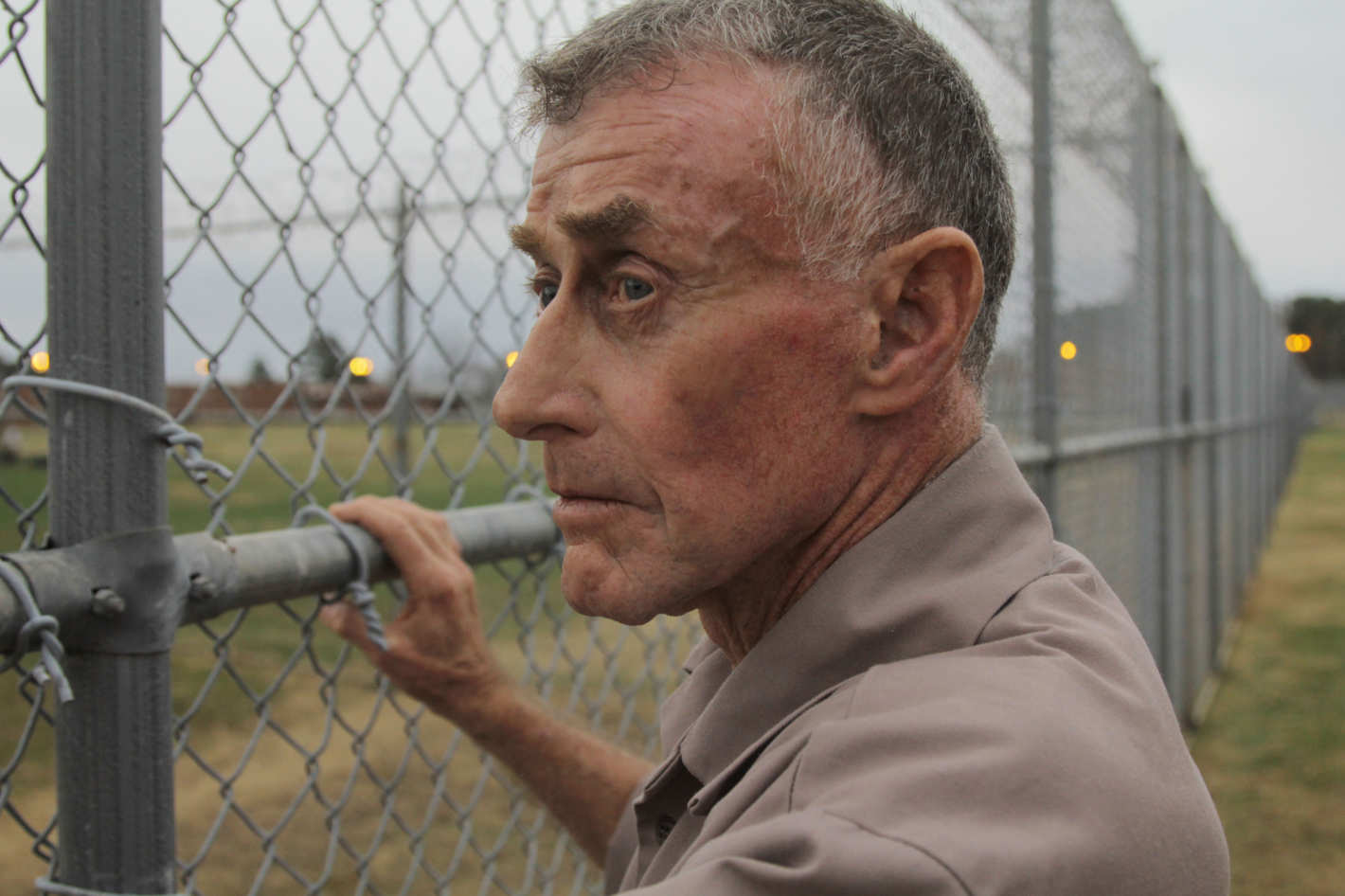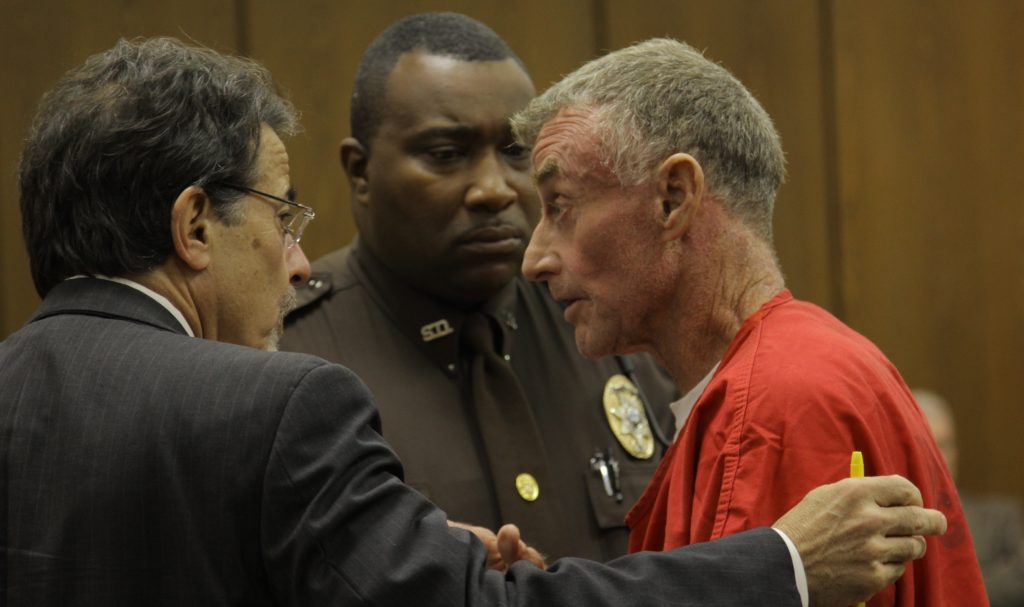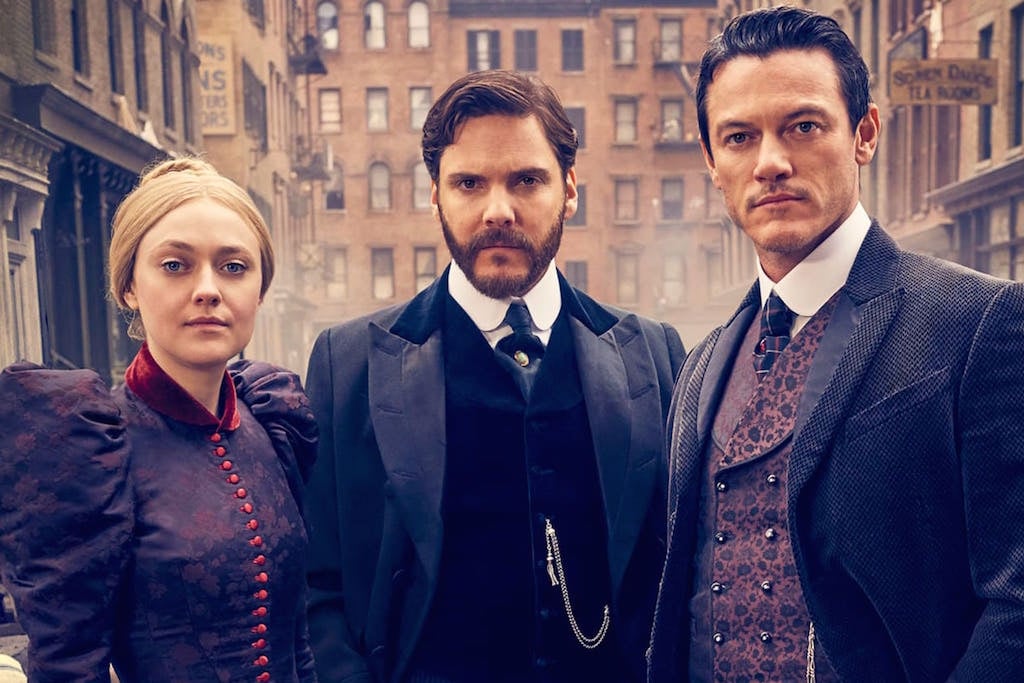‘The Staircase’ Is The Netflix True-Crime Doco You Need To Binge This Weekend
The greatest true-crime documentary ever is finally available in Australia.

Netflix is known for a lot of things, and stellar crime documentaries like The Keepers, Amanda Knox, Evil Genius and Making A Murderer is definitely one of them.
Last weekend, the streaming giant added a bit of legend to its growing catalogue: The Staircase. First airing in 2002, the original eight-part series followed the trial of novelist Michael Peterson, who was charged with the murder of his wife Kathleen.
Another two episodes dropped in 2013 and now, in 2018, the groundbreaking series comes to somewhat of a conclusion with three additional instalments. In North America, the case itself has been hotly debated for nearly two decades: and not just in the courtroom and the press. Between the oddness of the ‘crime’ itself and the people at the centre of the story, it’s one that fascinates the true crime community.
Largely due to territory restrictions that have prevented the series from being viewed locally, The Staircase is many Aussies’ first exposure to the case of Michael and Kathleen Peterson. And as those who tuned in found out, there’s a reason it’s considered the grand daddy of true crime docos.
The Crime Itself
The case, especially as more details unravel through the course of the documentary, isn’t clear-cut. It wasn’t in 2001 and it’s even less so in 2018, as technology has developed and revelations have emerged about specific law enforcement individuals involved in the original investigation and subsequent conviction.
Everything went down in December, 2001 when Michael Peterson made a panicked phone call to emergency services after discovering his wife — Kathleen — unconscious, bloody and barely breathing at the bottom of their home’s staircase. From the moment police examined the scene, they suspected foul play due to the sheer amount of blood present and Peterson’s unusual nature.
He was charged a short time later, with the subsequent trial one of the longest in North Carolina history and a media circus that dragged up everything from his bisexuality to another woman from his past who was also found dead at the bottom of a staircase.
One of the strongest elements of The Staircase as a storytelling vessel is the way its French filmmakers let it unfold, with unrestricted access to both the Peterson family and the prosecution as weirder and weirder shit keeps getting dragged into the arena. It’s also one of the reasons the case proves so divisive among legal professionals, media pundits, murderinos and your random Joe on the street. In my house alone, it was the cause of arguments about the validity of the physical evidence, strange circumstances and Michael Petersen himself that usually went something like:
Me: “He did it.”
Husband: “I think he’s innocent.”
Me: “Oh come on.”
Husband: “You’re literally wearing a shirt that says ‘The Husband Did It’. Of course you think he’s guilty.”
Me: “Yeah, but only because he’s guilty.”
Husband: *deep sigh*

The Legacy
French filmmaker Jean-Xavier de Lestrade had just won an Academy Award for his documentary Murder On A Sunday Morning (currently on SBS On Demand) about a teen wrongly accused of murder in Florida when he and his crew first began work on The Staircase.
With more than half a dozen features under their belt and one that had impacted real, tangible change, they were a team who knew what they were doing when it came to documenting the Peterson case … but even then, who could have predicted the enduring legacy of the series and the story itself, which continued to unfold right up until 2017.
Outside of the small screen, the case has had far reaching effects for all involved. Firstly, there’s State Bureau Of Investigation analyst Duane Deaver, who was one of the principle witnesses for the prosecution during Peterson’s original trial. However, nearly ten years after the fact, Deaver was fired and found guilty of misrepresenting blood evidence in over 34 cases, including one where a man had served seventeen years in prison based on Deaver’s testimony (his conviction was later overturned).
Then there was Mike Nifong, who appears in The Staircase at several points working for the prosecution. During his time as District Attorney a few years after the Peterson case, Nifong would end up disbarred and serving jail time for ethics breaches during the notorious Duke University men’s lacrosse team case.
The Owl Shit
Look, when discussing The Staircase or even just Michael Peterson’s name in general, inevitably something is going to come up about the owl.
It might not right away: it could be twenty minutes into the conversation, it could be in the group chat, it could be on a true crime podcast you’re listening to… but someone at some point is going to be like ‘yo, what about the fucking owl?’. What they’re talking about, of course, is the hella bizarre theory originally put out there in the press by one of Peterson’s neighbours that an owl was actually responsible for Kathleen’s death.
Yeah, it sounds bananas on paper, but it has proven to be surprisingly credible. The owl theory is that the large bird flew into their home while Kathleen was climbing the staircase and attacked her, causing her to fall backwards and ultimately to her death. Said owl is also supposed to be responsible for the unusual lacerations found on her head in post-mortem examinations, caused by the bird’s razor sharp talons.
The originator of the theory wasn’t just the Peterson’s neighbour, he was also a local attorney who had been following the case in the press and even went to the police with his suspicions after finding feathers documented in the list of evidence from the crime scene that — upon testing in 2008 — turned out to be multiple owl feathers found tangled in Kathleen’s hair.
The concept has also been supported by multiple professionals, including veterinarians, university doctors, lecturers, and owl experts from Montana wildlife centres. Now, perhaps wisely, the theory is barely mentioned in the documentary itself, outside of a throwaway joke made by one of the lawyers. Yet in the world of true crime junkies, the owl is one of the most talked and widely discussed elements of the case with everything from shirts, magnets and memes created in reference to it.
It’s also just another facet of the story, which has endured and infiltrated the pop culture lexicon.
—
The Staircase is now streaming on Netflix.
—
Maria Lewis is a journalist, screenwriter and author of It Came From The Deep and the Who’s Afraid? novel series, available worldwide.
